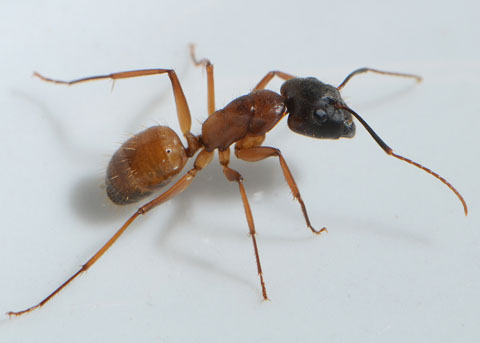So i was removing attic insulation and found some carpenter ants just hanging out under the insulation blown in cellulose.
Carpenter ants in attic insulation.
However it is important to realize that carpenter ants in the toronto area are also known to rip through and infest foam insulation.
Ants will build nests where ever they can find a suitable area to do so.
Carpenter ants found in attic.
Moist wood and fiberglass or foam insulation provide ideal locations for ant nests.
Carpenter ants will enter the house through wet damaged wood.
Carpenter ants build their nests outdoors in various wood sources including tree stumps firewood or landscaping.
The good news here is that the ants are visible to you and they are still going outdoors to forage which means they will walk through areas that that you treat outdoors.
The most common trait that carpenter ants are known for is their love of wood as a preferred harborage space for their colony.
There was a pretty good amount and some were huge.
Can ants live in insulation or can ants get through insulation.
While it would be unusual to have an entire colony in your attic it is not unheard of.
Carpenter ants typically seek wood that has been softened by moisture decay or other insects.
So i was removing attic insulation and found some carpenter ants just hanging out under the insulation blown in cellulose.
There was a pretty good amount and some were huge.
So do ants live in insulation.
This is the reason why carpenter ants that settle indoors can cause damage.
Do ants eat insulation.
Feed on sugars carbohydrates and greases.
When carpenter ants invade these wires they eat through the insulation posing a potential fire hazard from short circuiting.
I hit them with some raid ant killer and got alot of them but alot them fled the scene.
I hit them with some raid ant killer and got a lot of them but a lot fled the scene.
Carpenter ants do not eat wood but damage wood through their nest building.
Yes they can do both.
They need a constant water source to survive.
Carpenter ants have also been known to invade electrical wiring.
Nests found in wall voids bath traps and insulation.
Carpenter ants prefer to nest in structural lumber such as in wall voids hollow doors windows and foam panels.
Indoor infestations can be tracked by points of entry such as attic vents foundations cracks electric wires pipes and telephone lines.

